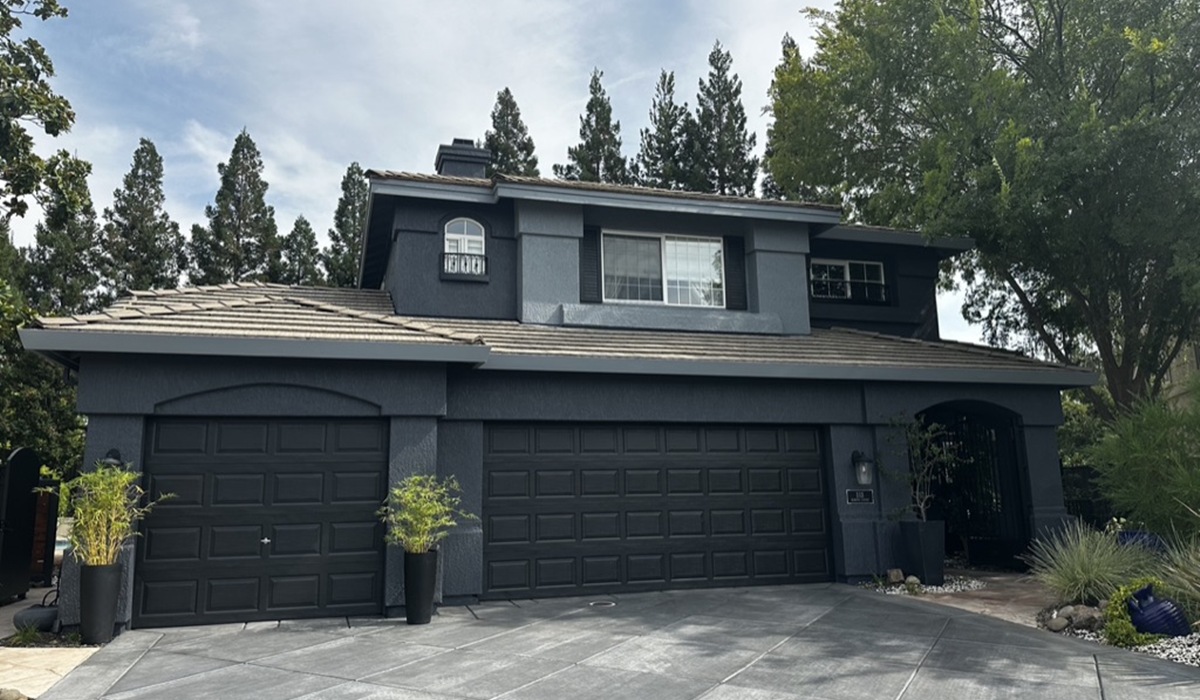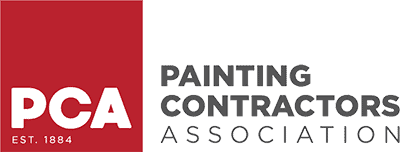Garage door painting might seem like a simple weekend project, but choosing the wrong paint can actually cause long-term damage. If you’re trying to find the best paint for garage doors, it’s important to understand how the wrong choice can lead to peeling, rusting, warping, or even voiding your warranty.
Before you grab that leftover paint can from your basement, let’s talk about how using the wrong kind of paint can do more harm than good—and what you should use instead.
Key Takeaways:
- Not all paints are suitable for garage doors, especially metal or vinyl types.
- The wrong paint can lead to peeling, cracking, fading, or rust.
- Use exterior-grade, weather-resistant paint specifically designed for garage door materials.
- Prep work like cleaning and priming is just as important as the paint itself.

Why the Wrong Paint is a Big Problem
Garage doors are exposed to constant sunlight, rain, humidity, and temperature swings. That means the paint needs to be flexible, durable, and able to withstand the elements. Using interior paint or a low-quality exterior paint can result in:
- Peeling and Cracking: Paint that isn’t made to expand and contract with changing temperatures will eventually crack and peel. This not only affects the look of your door but can also leave it exposed to the elements, speeding up wear and tear.
- Rust and Corrosion: If the paint doesn’t seal the metal properly, moisture can seep underneath and cause rust. Over time, this can weaken the structural integrity of the door and lead to costly repairs.
- Fading: Cheap paints often lack UV protection and fade quickly under the sun. A faded garage door can make your home look older and poorly maintained, lowering curb appeal.
- Sticky Surfaces: Some paints remain tacky and attract dust and dirt. This can give your garage door a dirty, grimy appearance even if it was just painted, and may interfere with smooth operation if the paint gums up moving parts.
What Type of Paint is Best for Garage Doors?
The best paint for garage doors depends on the material of your door:
- Metal Doors (Steel or Aluminum): Use 100% acrylic latex exterior paint. It’s flexible and adheres well to metal.
- Wood Doors: Oil-based exterior paint or stain works best, especially when sealed with a weather-resistant topcoat.
- Vinyl or Composite Doors: Use paint that’s specifically labeled for vinyl, usually a high-quality latex formula.
Avoid chalky or flat finishes; go for a satin or semi-gloss finish for durability and easier cleaning.
Prep Work: Don’t Skip It
Garage door painting isn’t just about slapping on a fresh coat. Surface prep is crucial:
- Clean the Door: Use a mild detergent mixed with water and a soft brush or cloth to scrub the surface of the garage door. This helps remove accumulated dirt, oil spots, mildew, and any remnants of old, flaking paint. Rinse thoroughly and let it dry completely before moving on.
- Sand: Using medium-grit sandpaper, gently sand any glossy or uneven areas of the door. This step roughens the surface slightly, allowing new paint to grip better. Pay special attention to rust spots on metal doors or flaky sections on wooden ones. After sanding, wipe down the surface with a damp cloth to remove dust.
- Prime: Apply a high-quality exterior primer that matches the surface material—metal, wood, or vinyl. Priming not only helps the paint stick but also creates a protective layer that prevents rust and moisture damage. It’s especially important when changing from oil-based to latex paint or vice versa.
- Tape and Cover: Use painter’s tape to outline the edges of windows, trim, handles, and hinges. Lay down drop cloths or plastic sheeting to shield the driveway and any nearby surfaces from drips or overspray. This ensures a clean, professional-looking result and saves you cleanup time.
Skipping prep work is one of the most common mistakes homeowners make—and it’s a fast way to ruin your hard work.
Can Paint Void Your Garage Door Warranty?
Yes—many garage door warranties become void if you use the wrong paint. Manufacturers often specify which types of paint and prep steps are allowed. If your door starts peeling or rusting due to incorrect paint, the cost is on you.
Always check your garage door’s warranty documentation or contact the manufacturer before you paint.

How to Know It’s Time to Repaint Your Garage Door
Not sure if your door needs painting? Look for these signs:
- Fading or discoloration
- Peeling or bubbling paint
- Rust spots on metal doors
- Warped or swollen areas on wood doors
Repainting your garage door isn’t just about curb appeal—it protects your investment.
DIY vs. Hiring a Pro
While painting a garage door is doable for many homeowners, mistakes can be costly. If you:
- Don’t have the right tools
- Aren’t confident about prep work
- Want a long-lasting, smooth finish
…then hiring a professional might be worth the extra cost. They’ll know exactly what type of paint to use and how to apply it properly.
Recommended Products for Garage Door Painting
Here are some tried-and-true options:
- Behr Premium Plus Ultra Exterior Paint (for metal and wood)
- Sherwin-Williams Duration Exterior Acrylic Latex
- Benjamin Moore Aura Exterior Paint
- Rust-Oleum Protective Enamel (great for metal doors)
- Zinsser Bulls Eye 1-2-3 Primer (multi-surface)
When in doubt, visit a local paint store with photos of your garage door, and ask for recommendations specific to your material and climate.
Final Thoughts: Don’t Cut Corners on Paint
It might be tempting to use leftover wall paint or skip the primer, but garage doors demand quality materials. Choosing the best paint for garage doors and taking the time to do it right will keep your door looking sharp and lasting longer.
If you’re unsure about what your garage door needs, don’t guess. Reach out to a professional who can help you get it right the first time.
Need Help With Garage Door Painting?
Let the experts at TRICO PAINTING take the guesswork out of your next home project. We specialize in garage door painting, refinishing, and repairs, ensuring long-lasting, beautiful results. Call us today at 916-957-2633 to schedule a free estimate!

